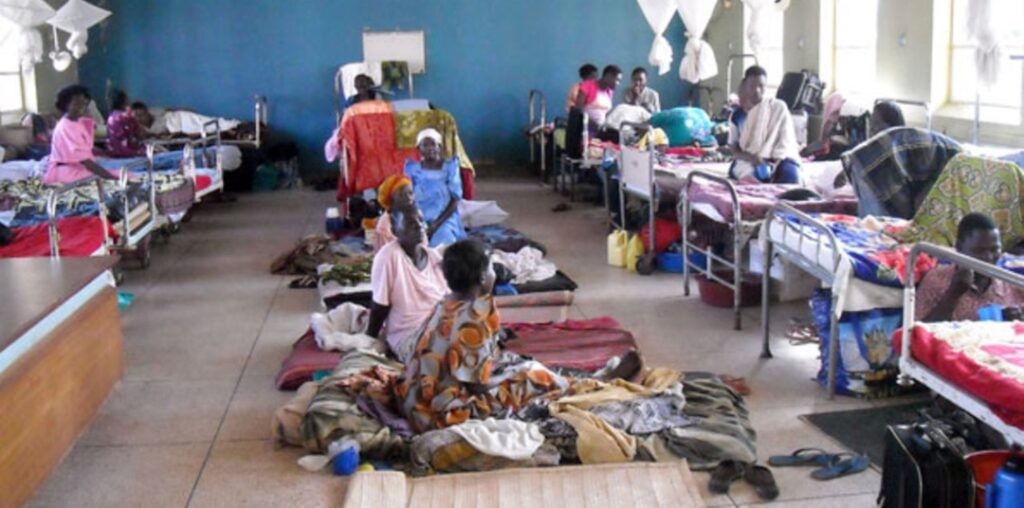By Amiri Wabusimba
Across the world, the journey to motherhood should begin with anticipation, dignity, and safe medical guidance.
But in many low- and middle-income countries like Uganda, that path remains fraught with danger not because we lack the knowledge to protect mothers, but because the systems entrusted with their care too often fail them.

I write from the deepest personal pain of My niece, a young wife and mother, died not because help was unavailable, but because the warning signs of her condition were never recognized early enough.
In the days before her death, she complained of persistent headaches a symptom no pregnant woman should ignore. Those around her tried to manage it quietly at home, unaware that this was the body’s desperate alarm.
By the time she was taken first to Kibuli Hospital and then referred to Kawempe Women’s Hospital, irreversible damage had set in. She was declared brain-dead upon arrival.
Doctors performed an emergency Caesarean section, saving her premature baby, but despite 24 hours of intensive care, she never regained consciousness.
This was not a mysterious illness; it was eclampsia a catastrophic progression of high blood pressure in pregnancy. In medical literature, it is described as sudden, severe, and preventable.
In reality, it devastates families because basic antenatal protocols are overlooked. A routine blood pressure check, a simple act that costs nothing, could have saved her life. Her postmortem confirmed the tragedy: bleeding in the brain and heart, evidence of an undiagnosed hypertensive crisis.

What makes this case even more painful is its predictability, global health institutions such as the World Health Organization estimate that Uganda continues to lose 284 mothers per 100,000 live births, significantly above the global average.
While progress has been made over the past two decades, the numbers remain unacceptably high. Behind every statistic is a woman like my niece with dreams, responsibilities, and a family that depended on her.
A major part of the problem lies in the fragmented network of private clinics providing antenatal services with minimal regulation. These centers, especially in rural and peri-urban communities, operate with outdated tools, inconsistent practices, and personnel who may lack sufficient training.
Their shortcomings quietly contribute to preventable deaths, while the public health sector already burdened with a doctor-to-patient ratio of 1:25,000 struggles to fill the gap.
Government investments in specialized maternal hospitals deserve recognition, but infrastructure alone cannot fix a system that allows poor-quality antenatal care to flourish unchecked.
Oversight must extend to every corner of the healthcare landscape. It must become impossible for any facility private or public to conduct antenatal visits without standardized screening, qualified staff, and proper referral mechanisms.
The reality is that maternal mortality is not just a health issue; it is a test of a nation’s commitment to its people.
Families in rural villages, coffee-farming communities, and informal settlements rely on the nearest facility because they have no alternative.
When those facilities fail, mothers die silently, and communities lose the pillars that hold them together.
Saving mothers requires more than policy documents, it demands swift inspections, community education, respectful maternity care, accessible diagnostic tools, and accountability at every level.
It requires families to understand that antenatal care is not symbolic it is life-saving. It requires health workers to treat every symptom as an opportunity to protect a life.
The world is committed, through Sustainable Development Goal 3.1, to reducing maternal mortality to fewer than 70 deaths per 100,000 live births by 2030.
Whether Uganda and many countries like it reach that goal will depend on what we do now: how we regulate, how we train, how we listen, and how seriously we treat every expectant mother.
My niece was only 38, she left behind children who will now grow up asking why their mother never came home. Her story is not a statistic; it is a call to conscience.
No family should lose a mother because a blood pressure check was skipped. No woman should die from conditions the world has long known how to prevent.
Her death must not fade into the background of maternal health reports, it must become a turning point a catalyst for stronger systems, clearer accountability, and the unwavering belief that every mother’s life is worth protecting.
We owe it to her, and to every woman who places her trust in a system that must not fail her.

Wabusimba Amiri is a communication specialist, diplomatic Scholar, Journalist, political analyst and Human Right activist. Tel: +56775103895 email: Wabusimbaa@gmail.com
Have An Advert Or Article You Want Us To Publish? Whatsapp: +256786288379 or email binocularugnews@gmail.com
